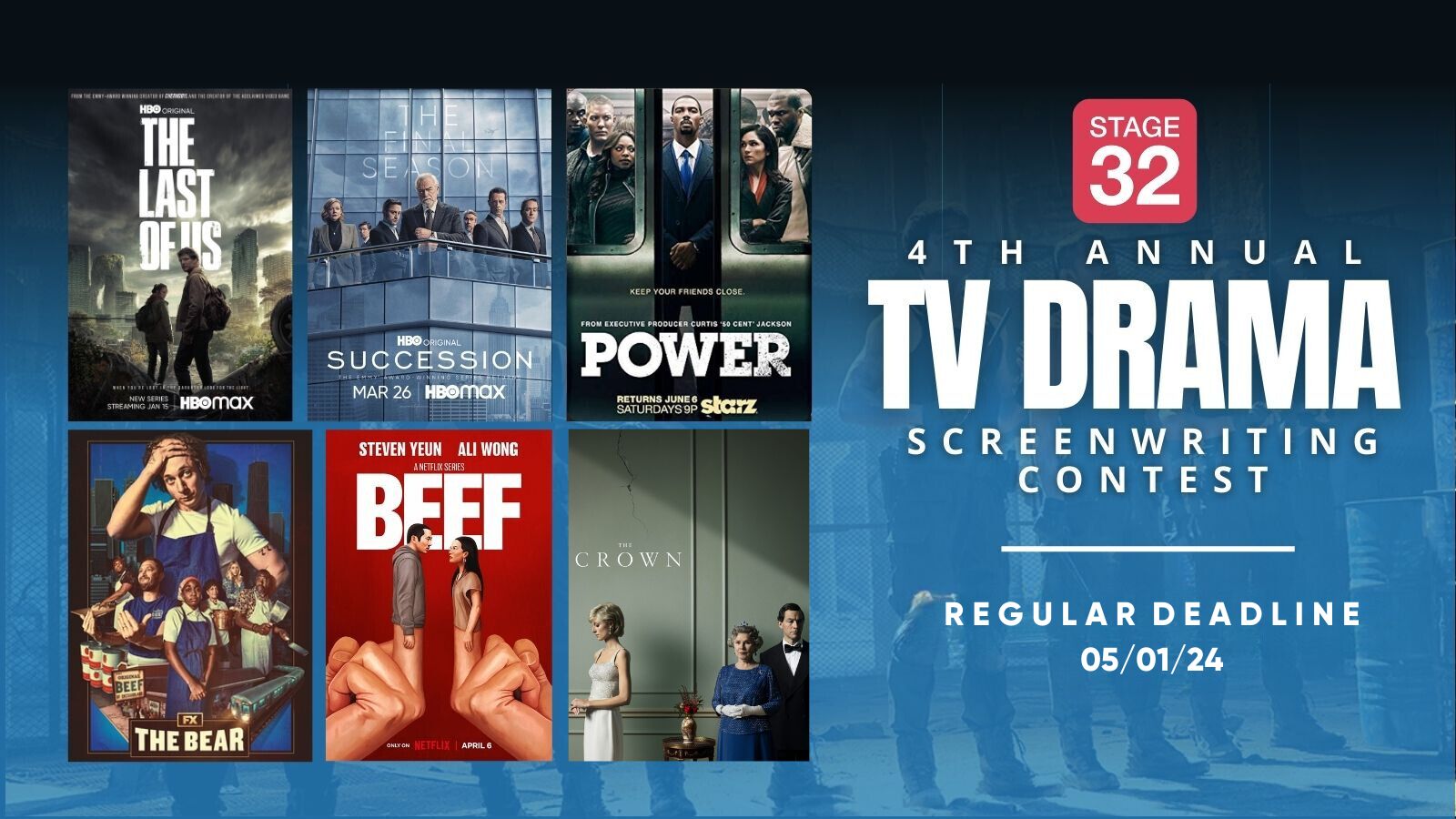How much research does a screenwriter need to do when writing a script. Do we need to know all the medical terms for what is happening in lets say in an ER. Or do we just write what is going on. Doctors work on gun shot victim, trying to stop the bleeding. Or if its a Historical piece do we write what someone would be wearing during that time? Or just say She wears 1940's fashion? I tend to do a lot of research for myself to really know the subject.



As much research as possible! If you're still stumped and Google isn't helping, consult an expert. Think of your audience. If they're "in the know" about the subject matter, but your script is inaccurate, it could be a big turnoff. Which is no good. I don't think there is such a thing as too much research. I enjoy doing research because I believe it adds legitimacy to my writing and sometimes it helps me piece the story together.
You need to know enough to lie about it intelligently. For my last script it was a solid three months of research, printing & reading industry material and studying forums on the topic before I felt comfortable writing on the subject.
Yup, as much research as possible. If you're glossing over or half-assing it, it will be clear. You need to know your world better than anyone. You may not use all the info or research you do, but better to have a full arsenal of information to drawn from and use, than not enough. Writing a medical scene without knowing proper terminology is like writing an action movie and just saying "action ensues." You should be the expert of yyour story and anything your story encompasses. Plus that research may make it clear different directions your story could go into, or directions it CAN'T go into because it's not true to the time period.
I agree with all of the above. We must write about what we know first and if we don't, research-research and more research. Quantum leap into that time period or use your parents or grandparents. My father who's almost 80 loves telling me stories of his teenage years and back at his little hometown in the country in pre communist Cuba.I enjoy it a lot and he enjoys himself even more and I hope to write something about his story someday in his honor.
The On the Page podcast had the medical consultant on a few months ago: 344. The Doctor Is In Dr. Zach Lutsky talks about what he's learned as a medical consultant and writer for television dramas (E.R., Mob Doctor, Scandal and more). 4/11/14 https://itunes.apple.com/us/podcast/on-the-page-screenwriting/id262077408 I think he's also offering a class in her Studio City studio.
I find that research can actually help the story. It clues me into details, nuances or dramatic possibilities I may not have considered, and those will come naturally in the midst of the setting rather than being "contrived" to force my plot along.
1 person likes this
The great thing about research is that you discover fascinating things for your story that you didn't even know existed. On CRASH DIVE I discovered a device on submarines used in fire rescue situations that can see through smoke and even submarine bulkheads to find trapped people though heat signatures. That ended up in the story. Because I had done so much research on the script, the Navy gave me a submarine tour and let me question the crew, so that I could add even more interesting stuff... most of which never made it to film.
Make it sound Real.. Stat !
Yep, like they said lol, do as much as possible. A great part of getting a new script, as an actor, is putting all those script analysis classes to good use.
2 people like this
Essential but as a write you should not let research interfere with your story, get that down first. Now if you have the luxury you could use the Anne Rice technique of spending 2 years reading everything you can on a period, place etc and then write from that perspective but if not get your story down and then engage a good technical adviser in the process to pick up any slips. In a job I did recently set in 1860 the writer had a scene with the main character putting bullets into his 6 shooter; I had to point out that while revolvers were the new thing and widely used, bullets did not exist and each chamber had to be loaded individually. The only way to do a quick reload was to have a pre loaded spare chamber section to switch out. As has been said there WILL be experts in the audience and they will take great delight in saying how wrong something is. That said if you want a particular piece of action, your historian/tech adviser will (or should) be able to tell you how to get the effect you want with a nod towards history even if it couldn't happen in real life. It is also well to remember that many actors who shine in historical roles know something about history so any producer or director who wants to land them should be able to explain why an action is being done and they know how it should be. That give the actor confidence and trust that the director is not going to have him do something completely off the wall.
2 people like this
Thanks for raising this topic Ann. I love the pre-research for a movie script or play. I'm finding however, like Tim says, one shouldn't let a lot of detailed pre-research interfere with getting the story out. I'm finding it's good to do more detailed research as one fills in the structure and dialogue. In concentrating mostly on the 1860-1914 era, am also accumulating research on not only costumes, transportation and physical things, but attitudes, habits and manners. These things are so important to dialogue etc. and will have changed substantially in the last hundred + years.
1 person likes this
Just enough but not to where you're writing a research report!
Good advice John. I've been hooked on the research and find it damn interesting, to the point of finding it difficult to start writing. As you say, should concentrate more on story, drama, conflict and tension. Thanks for reminding me!
1 person likes this
Hi Ann - these are great (and frequently fun) questions to consider. I love history, and all the work I have posted on my page here reflects that (everything I have is a period piece of some kind or another). For my "day job", I work alongside dozens of intelligence-community people who frequently complain about movies or TV shows that "get it wrong", and the main good thing people used to say about Tom Clancy's books was that they were well-researched and factually accurate. So, yeah - research can make work strong, especially if you see your target audience as people who tend to "geek out" on factual, historical or technical accuracy. On the other hand, I also know the historical research part is fun for me, so it can sometimes turn into a distraction or get me sidetracked from actually WRITING. When I realize I'm just kinda goofing around with no actual writing goal in mind, that's when I know I'm past the "how much research do I need to do" point.
I'm in the minority but I think excessive research is a waste of time. Saying "as much as possible" is crazy - as much as possible would be researching for the rest of your life, you have to prioritize things. Yeah you should feel reasonably knowledgeable about what you're writing about but the key skills in screenwriting I believe are story structure and character development and designing dramatic situations - juxtapositions of human behavior and flipping genre conventions and making story devices work. If you actually like doing research, and it can be interesting, then do it, but an impeccably researched script with bad structure, not enough dramatic conflict, or amateurish dynamics is not going to sell like one that has a basic layman's knowledge but is perfectly constructed dramatically. So I think your time is better spent deconstructing the mechanics of Othello or The Godfather than hunting down the exact phrase a real surgeon would use while performing an operation. Besides that's something that can be done after the fact. They're not paying you to be an expert in the field you're writing about, they're paying you to be an expert at bringing character and human need together with story mechanics in an original yet moving way. But you should have a reasonable level of knowledge of what you're writing about at least. AND it makes sense to write about stuff that you are familiar with. You've already been researching your next script without knowing it just by living your life... For example, I have a rule now that I don't write anything that takes place in a city or area I've never been to.
I agree Lisa
My co-writer and I really researched a topic we wrote on because we had no real personal experience with the topic. We received feedback from a reader at one point who assumed we were pros on the topic. That said, I think research is important in good writing.
Do the necessary research, but don't let it get in the way of you writing the story. Many times the research can be all encompassing and suddenly time slips past and the writing doesn't move forward. Part of the fun of research is actually getting to learn new things or visit new places. I was granted permission to tour a huge cargo ship and go into the deepest parts because I was writing script that took place on a cargo ship. Read my article about research: How much / how little? http://scriptcat.wordpress.com/2012/03/04/respecting-the-process-of-rese...
Thanks for the in put. I just dont want to go so deep into research that it takes away from the story. Do I really need to know the price of sugar in 1943?
If your character is walking past a shop that might sell ir, no, if he is a sugar buyer in 1943 yes! What you need to know depends on the plot!
Know your subject but use poetic license. Good advice above from Mark and Tim. Don't let the facts get in the way of the story.
How much research?? As you research, you will stumble upon information that could alter the plot you originally had in mind or even give you a fascinating sub-plot. At least you will feel comfortable in the time frame you have chosen -- and that is a great help. Accidental stumbles will often enrich your project. Good luck to you!